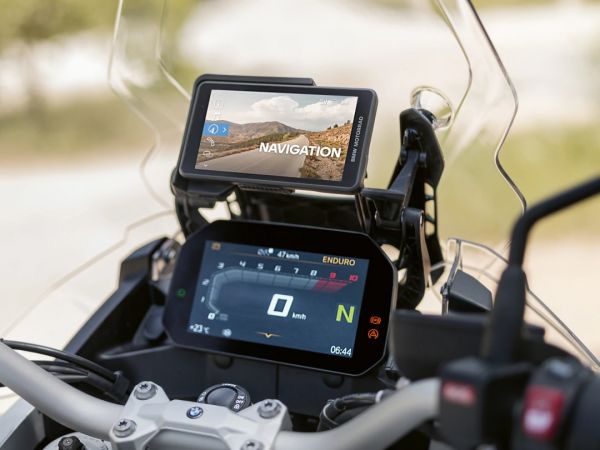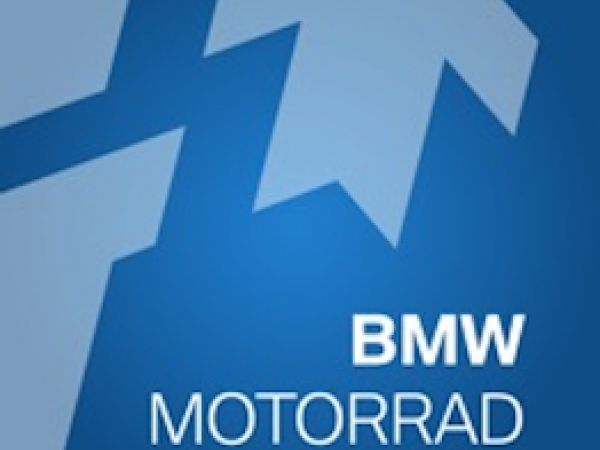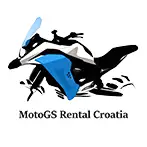Traffic regulations in Europe - Greece
Traffic regulations in Europe - Greece
Category: Traffic regulations in Europe
What should be considered on a motorcycle tour to or through Greece? What documents do you need to bring with you? MotoGS WorldTours and MotoGS Rental provide you with answers to your most important questions.
Errors and omissions excepted - all information without guarantee.
Basics:
Greece has been a member state of the EU since January 1st, 1981 and introduced the EURO as official means of payment on January 1st, 2001. Furthermore, Greece has been part of the Schengen area since January 1st, 2000 and is therefore part of the Schengen Agreement. Therefore, it makes entry very easy for all EU citizens. But even for non-EU citizens, the entry option is usually very uncomplicated.
Vehicle papers and other necessary documents:
The vehicle registration document or the registration certificate part I is mandatory.
The IVK - International Insurance Card (formerly Green Card, including GR, but correctly EL) is proof of liability insurance.
The EU driver's license is accepted in Greece, so no international driver's license is required. For non-EU citizens, an international driving license is required in addition to the national driving license of the country of origin.
EU citizens can enter Greece with a valid identity card, regardless of the reason or purpose of their entry or stay in Greece. A passport is not required. The stay can be extended up to 90 days within a 180-day period.
Non-EU citizens will most likely need a visa for Greece, while citizens of EU and Schengen countries, as well as certain other countries such as the US and Canada, can stay as tourists for up to 90 days in any 180-day period.
All foreigners, whether EU citizens or non-EU citizens, must report their stay in the country no later than on the day of departure. However, this is usually done automatically by hotels and other accommodation for their guests.
However, it is always useful as a foreigner or non-EU citizen to find out about the entry requirements for Greece in the respective home country on the following website "VisaHQ". This is for your own safety.
All personal documents must be valid for at least 3 months upon departure.
With a rented motorbike to or through Greece:
Basically not a problem, but riders who make trips to or through Greece with a vehicle not registered in their name must carry a usage permit from their rental company to be on the safe side. You can also download this permit as a template from this link.
The legal driving age for general motor vehicles in Greece is 18 years. However, if you want to rent a motorcycle on site, you must be at least 21 years old and have had your motorcycle license for at least 1 year.
However, the local rental stations often require a minimum age of 23 years. Young rider surcharges are often required for riders under the age of 23.
Health insurance:
In principle, all travelers to Greece or abroad in general, regardless of their country of origin, should take out international health insurance. This can also be done easily here via Global Rescue. Surely this type of insurance protection is a bit more expensive than other providers. However, as the name suggests, this type of coverage is built on Rescue. Therefore not comparable. However, this should not be understood as advertising, it is a simple recommendation.
Helmet obligation:
Helmets are compulsory! Only helmets that comply with ECE standard 22 are permitted.
First aid kit / warning vests:
It is not absolutely necessary to carry a high-visibility vest or a first aid kit packed in a dust-tight manner. But just in case, it is always advisable to carry a high-visibility vest, a dust-proof packed first aid kit, a motorcycle warning triangle and a small warning light.
Lighting:
Outside built-up areas, dipped headlights must be used all year round during the day. The use of daytime running lights is only permitted when visibility is good during the day. This regulation also applies to rides within towns.
Taking a set of spare bulbs with you is not mandatory, but advisable.
Speed limits in Greece:
In built-up areas: 50 km/h, while motorcycles 40 km/h
Out of town: between 90 km/h and 110 km/h, while motorcycles usually 70 km/h
Motorways: 130 km/h, while motorcycles 90 km/h
Be sure to pay attention to the signs here.
Alcohol limit:
The general traffic rules in Greece also determine how much blood alcohol in the blood drivers are still allowed to ride a motorcycle. The general alcohol limit is 0.5‰. However, there is an exception for novice drivers with less than 2 years of driving experience and motorcyclists. The blood alcohol limit here is 0.0‰. Therefore, no alcohol shall be detected in the blood at all. There is no tolerance!
Violators face very high penalties.
Possible penalties for violations: Fines of up to EUR 2,000 are normal in Greece and of course a riding ban and withdrawal of the driver's license. This is especially true for novice drivers and motorcyclists.
And always think of the enforcement agreements between the EU countries.
Under certain circumstances, non-EU citizens can get away with it more easily, but the general rule is simply not to take risk.
Environmental zone:
Of course, there are also environmental zones in Greece and these are especially in Athen. However, all foreign motor vehicles and even rental cars or rental motorcycles registered in Greece are excluded from this regulation. However, the regulation for rental cars and rental motorcycles registered in Greece only applies to the first 40 days from the start of the rental period.
So if you are going to Greece and more specifically to Athen with your own motorcycle or with a rented motorcycle registered outside Greece, you do not have to worry about this question anymore.
If you still want to know more about it, you can get all the information from Urban Access Regulations in Europe.
Tired of tolls on motorways, tunnels and bridges.
Anyone driving a car or riding motorbike in Greece has to pay tolls. We have therefore compiled all the necessary information for you here.
In Greece, tolls are charged for using the motorways between Thessaloniki, Athens, Patras, Tripoli and Kalamata. Furthermore, the underwater tunnel Preveza-Aktio and the Rio-Antirrio, as well as some national road sections are subject to tolls.
Tolls in Greece - Where do I have to pay?
In Greece, car and motorcyclists have to pay a corresponding toll on a total of six sections of the motorway. The toll can be paid in cash, by credit card or electronically using a transponder. Payment is made directly at the toll station.
There is a toll on sections of the following motorways:
- Aegean Motorway: Kleisi-Raches
- Attiki Odos (ring road around Athens)
- PATHE Motorway: Lamia-Athens
- Egnatia Odos Motorway: Igoumenitsa-Kipi
- Olympia Odos Motorway: Athens-Corinth-Patras
- Moreas Motorway: Corinth-Tripoli-Kalamata
Are bridges and tunnels subject to tolls?
YES, the bridge between Rio and Andirrio, the underwater tunnel between Aktio and Preveza (Aktio Preveza Tunnel) and the tunnel between Artemission and Corinth are also subject to tolls.
What is the amount of the toll in Greece?
The amount of the toll in Greece depends on the type of vehicle and which toll booths you pass on your trip. Motorcycles generally belong to vehicle class 1. Class 1 also applies to motorcycles on the city motorway around Athen, although this particular toll is subject to a different grouping.
What is the toll for motorcycles on the following routes?
- Aegean Motorway / Kleisi-Raches: EUR 0,50
- Moreas Motorway / Korinth-Tripolis-Kalamata: EUR 0,30
- PATHE Motorway / Lamia-Athen: EUR 0,45
- Olympia Odos Motorway / Athen-Korinth-Patras: EUR 0,30
- Egnatia Odos Motorway / Igoumenitsa-Kipi: EUR 0,80
- Athens bypass: EUR 1,40
You will also have to pay tolls for using tunnels and bridges. These are due at the Preveza-Aktio-Underwater-Tunnel as well as at the Rio-Andirrio-Bridge.
- Preveza Aktio Underwater Tunnel: EUR 0,70
- Artemission Tunnel: EUR 1,70
- Rio-Antirrio Bridge: EUR 1,90
Correct behavior in the event of an accident or breakdown:
In some countries, including Greece, it is important to call the police even in the case of "minor damage", because the police protocol is the basis for the settlement of the damage. It is strongly advisable to prepare the "European Accident Report" damage report.
If people are injured, it is all the more obligatory to call the police.
Vehicles with conspicuous previous bodywork damage should have a police confirmation of the previous damage already on arrival so that there are no unpleasant surprises when leaving the country later.
Fines – Peculiarities in Greek traffic:
In Athens' Green Zone, parking is only allowed in designated parking lots with parking meters. Whether and what kind of parking space is involved is indicated in Greece by colored markings on the side of the road:
- yellow stands for no parking,
- blue for paid parking spaces and
- white for free parking zones.
You should also be particularly careful at roundabouts. Because the traffic rules of Greece provide that the entering vehicles have the right of way.
It is not permitted to carry fuel in reserve canisters.
Sleeping on streets and parking lots is generally not allowed, not even with a tent.
Anyone who breaks traffic rules by car in Greece will very likely have to face expensive penalties. In principle, vacationers can also be punished for possible offenses according to the catalog of fines.
Therefore, if, for example, a speed camera caught you speeding, you may receive a fine from abroad weeks after your trip. This names the specific violation of the traffic rules of Greece and also lists the sanctions according to the catalog of fines.
But can these be enforced at all within the EU, for example in other EU countries?
In principle, the EU framework decision on the enforcement of monetary sanctions (RBgeld) enables the enforcement of fines within the EU beyond the respective national borders. However, the Greek government has not yet transposed the decision into national law, so enforcement is not possible.
Nevertheless, you should not take lightly the sanctions for violating the traffic rules of Greece. Because under certain circumstances, you may only be allowed to continue your journey during your further vacation or trip after paying the outstanding fines. There is also the possibility that the claims will increase further in the meantime due to possible reminder fees.
Therefore, settle the claims particularly quickly, as this can also affect the amount of the fine. Because if you pay the fine from abroad within ten days of receiving the notice of the fine, the fine is reduced by half. This deadline also applies on site.
Even non-EU citizens should be careful here.
This certainly does not apply to motorcyclists, but it is still interesting to mention that if children under the age of twelve are in a vehicle, there is in Greece an absolute smoking ban in Greece in cars. If this is disregarded, a fine of up to EUR 1,500 can be levied for this violation of the traffic rules of Greece.
Emergency numbers in Greece:
The emergency numbers are 110 and 112
As of 7/7/2023

TAGS
usage permit for rented motorbike urban access regulations in europe tripoli thessaloniki rio-antirrio bridge preveza-aktio-underwater-tunnel patras olympia odos motorway: athen-korinth-patras moreas motorway: korinth-tripolis-kalamata kalamata european accident report environmental zone greece emergency numbers in greece 110, 112 egnatia odos motorway: igoumenitsa-kipi bypass athen artemission-tunnel aegean motorway: kleisi-rachesShare Your Thoughts
Share your experiences, questions, or suggestions!
Comments from Fellow Riders
Nobody has commented yet – your thoughts?
Blog categories
Rent a motorcycle in Split Croatia

* BMW F750GS - lowered
The perfect rental motorcycle - the BMW F750GS. This motorcycle is the new standard in the middle class ...

* BMW F750GS
The perfect rental motorcycle - the BMW F750GS. This motorcycle is the new standard in the middle class ...

* BMW F800GS
This bike has ADVENTURE IN THE BLOOD!
Live for the challenge. Ride further where others don't ride. Turn the challenges into ...

* BMW F850GS
ADVENTURE IN THE BLOOD
Live for the challenge. Ride further where others don`t not ride. Turn challenges into opportunities.

* BMW F900GS Adventure
AS UNIQUE AS NEW ADVENTURES!
Hungry for experiences and something different? Your GS is already waiting for you. Ready to ...

* BMW R1250GS - lowered
Whether on extended tours or off-road: The BMW R1250GS with its boxer engine combines driving dynamics ...

* BMW R1250GS
Whether on extended tours or off-road: The BMW R1250GS with its boxer engine combines driving dynamics ...

* BMW R1300GS (DSA)
There is no such thing as a too big project, just the wrong equipment. Luckily, you do not have to worry about ...

* BMW R1300GS (DSA + ASA)
Your wanderlust knows only one answer: BMW R1300GS. When you set off for distant destinations ...

Motorcycle tires
Motorcycle tires | Travel enduro | Enduro

Ride the Trans Euro Trail (TET)
Good reasons you need to ride the Trans Euro Trail (TET).

The magic of the Balkans
Whenever “The Balkans” comes to mind, the first thought that comes to mind is: “I want my next vacation SOON.”

The International Driving Permit
What you should consider with your national motorcycle license ...

BMW Motorcycle ConnectedRide Navigator
The new BMW Motorcycle ConnectedRide Navigator ...

BMW-ConnectedRide Cradle and ConnectedApp
Riders of new BMW models have several options for using information and entertainment ...

Traffic regulations in Europe - Albania
What should be considered on a motorcycle tour to or through Albania?

Traffic regulations in Europe - Austria
What should be considered on a motorcycle tour to or through Austria?

Traffic regulations in Europe - Bosnia Herzegovina
What should be considered on a motorcycle tour to or through Bosnia and Herzegovina?

Traffic regulations in Europe - Croatia
What should be considered on a motorcycle tour to or through Croatia?

Traffic regulations in Europe - France
What should be considered on a motorcycle tour to or through France?

Traffic regulations in Europe - Germany
What should be considered on a motorcycle tour to or through Germany?







